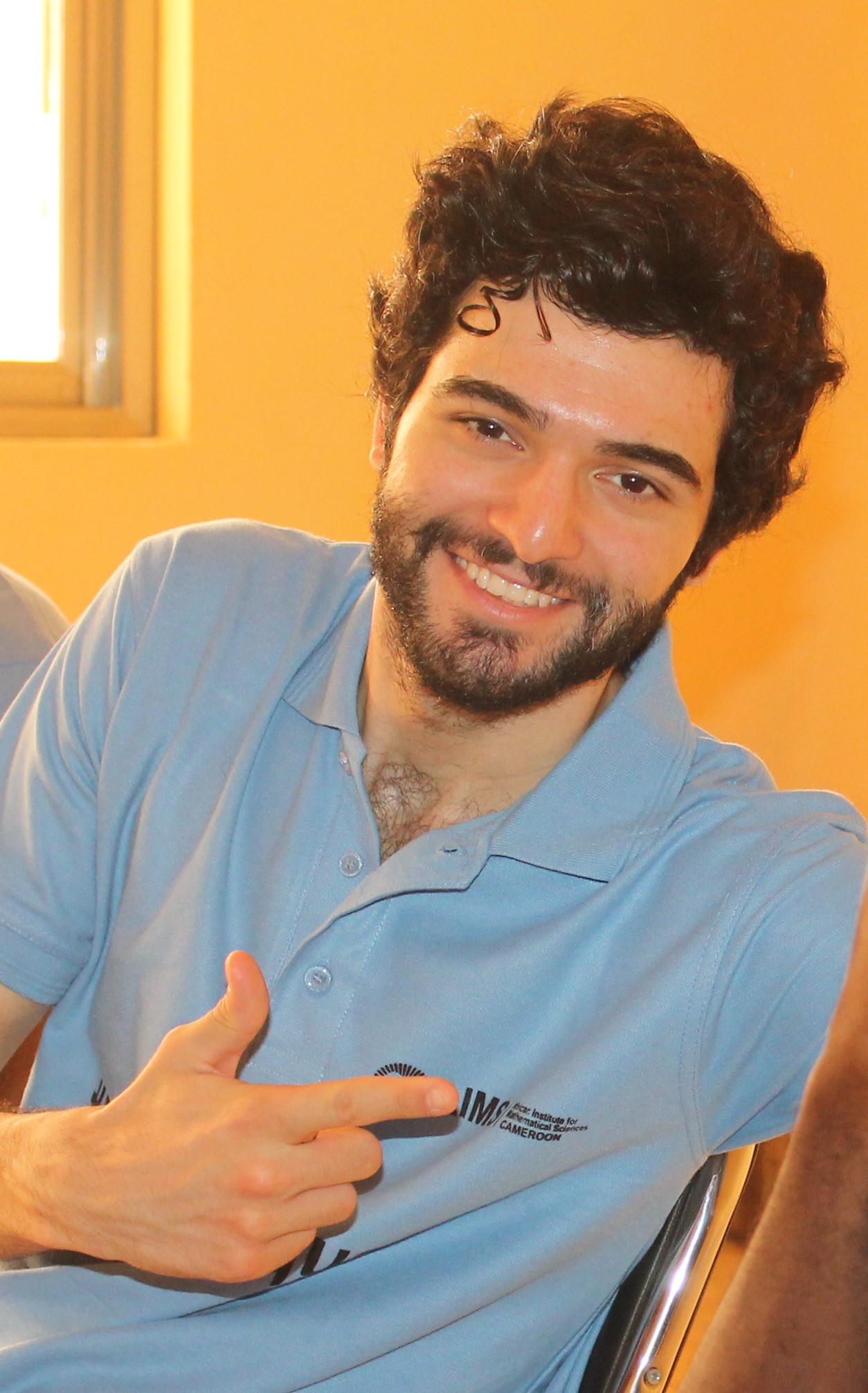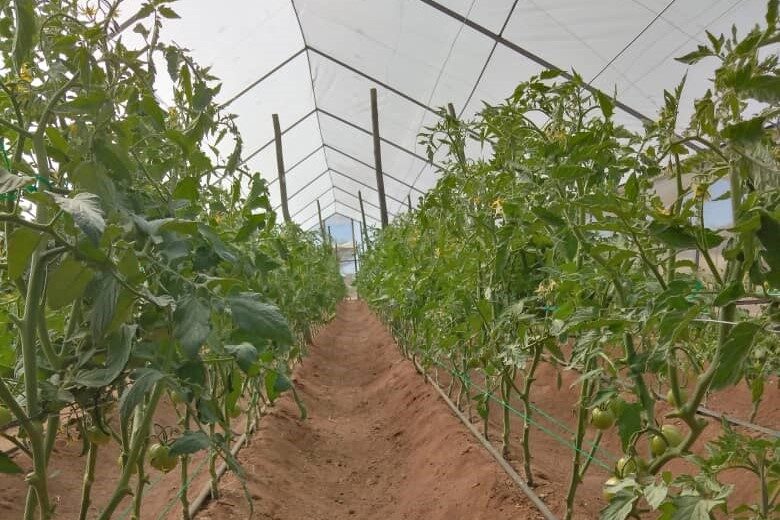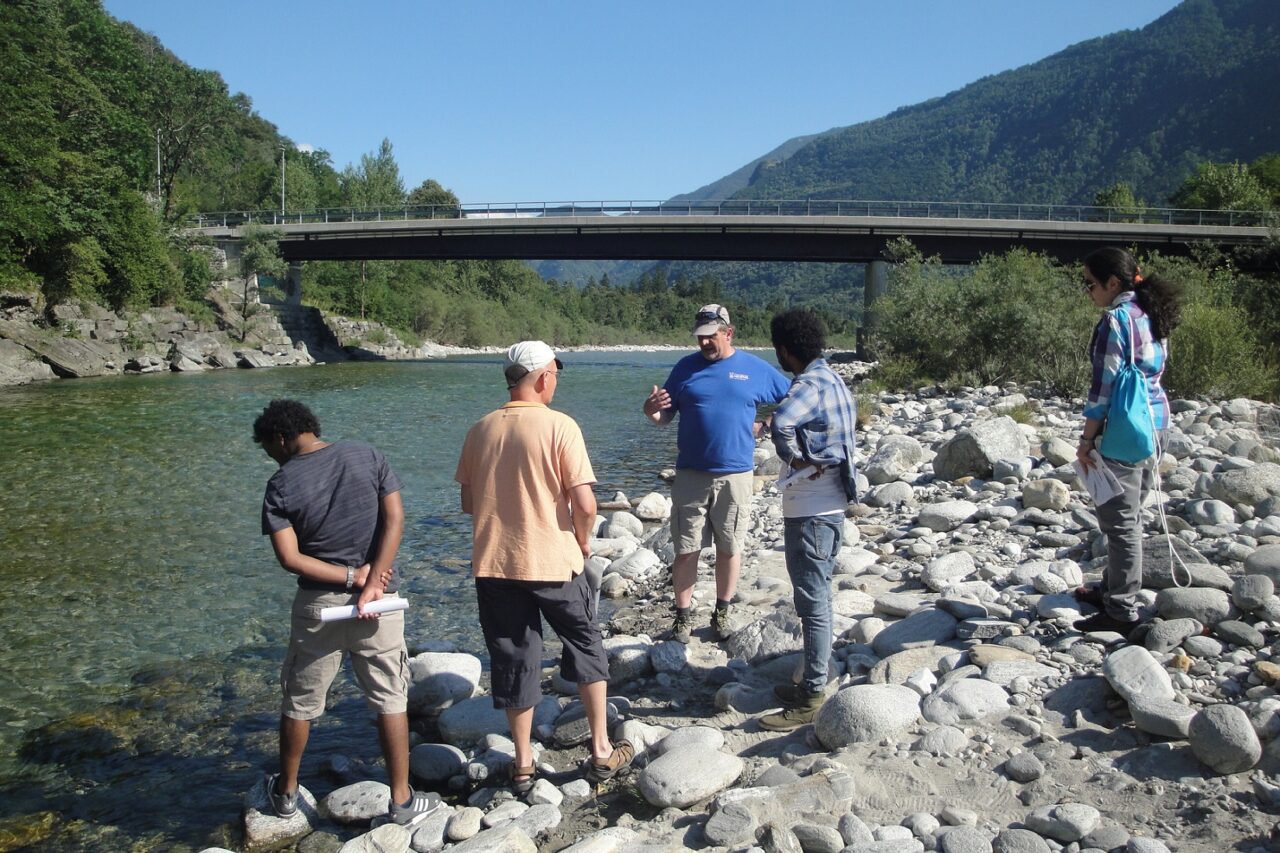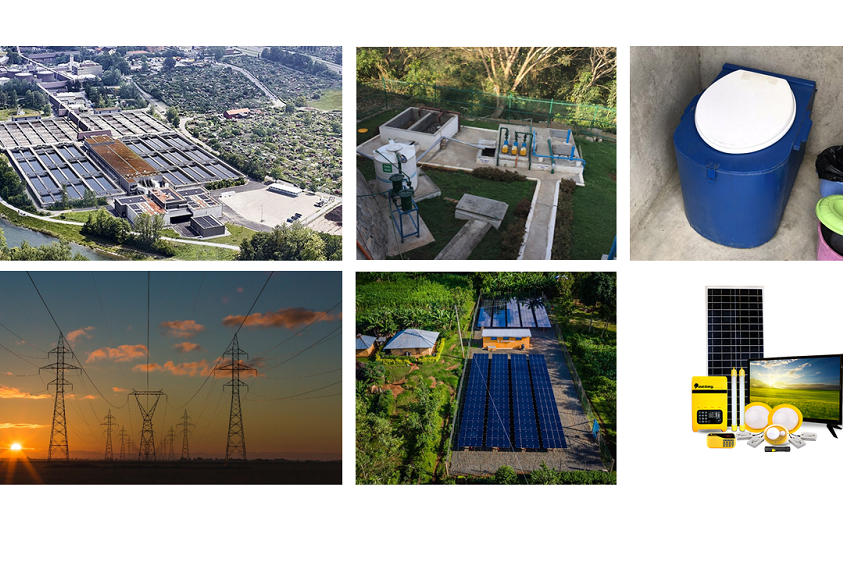My name is Göktug Alkan, I am a graduate student from the electrical engineering department of ETH Zurich. During my studies, I developed a huge interest in machine learning, particularly in its mathematical theory as well as in neuroscience. Besides my studies, I was reading and thinking deeply about ethics, epistemology and ontology. I really wanted to understand the meaning of a world which led me to a life full of studies. This contemplation helped me understand that what I needed was an opportunity that would enable me to experience new places, new people and new ideas.
Addressing Africa’s challenges with mathematical science
by Göktug Alkan, ETH Zurich graduate student, 10 September 2020

After our weekly football game (photo credit: Göktug Alkan/ETH Zurich)
On my way to the ETH library one day, I noticed a poster about the African Institute for Mathematical Sciences (AIMS), stating that they were looking for tutors from outside Africa. This institute has the great ambition to raise a new, game changing generation of Africans, by bringing together and educating brilliant students from all over the continent. Inspired by this ideal, I sent my application to several regional centres and I received an invitation from the AIMS Cameroon. For one moment, I hesitating, thinking again about travelling to this completely different continent which might be incomparable in all respects to the world where I grew up. It did not take much time, however, for me to recognize that this was exactly what I needed, and I let the adventure begin.
For me, the African Institute for Mathematical Sciences opened the door to a completely different world and gave me the possibility to collaborate with students as well as tutors from all over the continent. I really felt that I was able to develop myself by teaching topics ranging from pure mathematics to the internet of things, and by benefiting from the opportunity to co-supervise several master projects. Most importantly, during my stay at AIMS, I was able to obtain deep insights into the African world.
Let me describe the setting of the institute. Here, the academic year starts in September and ends in July the following year. During this year, there are blocks lasting three weeks in which three different courses in pure or applied mathematics are taught. For these courses, AIMS invites lecturers from all over the world. The lectures are accompanied by assignments, tutorials, and quizzes. Usually, the students take two courses per block and they work hard to complete them successfully. The grade they receive for a course is determined by the assignments that they hand in, by the results of the quizzes, and by the group presentations that they are supposed to do on the last day of the course.
To meet the high expectations that they are confronted with in the lectures, the students work passionately, sometimes even at night. AIMS tries to create an appropriate environment to support these dedicated students during their studies. They get scholarships, they stay on campus, they are supplied with breakfast, lunch, and dinner, they can use the library and the classroom for their studies and they can always go to the tutors to ask questions related to the lectures as well as to their personal situations.
Besides their studies, the students do sports together with the tutors to keep healthy. The students especially love to play football, and almost every student has a favourite team from Europe, buys its shirt, follows its games, and discusses their latest news intensively with his or her peers.

Graduation day II (photo credit: AIMS)
In the last two months of the academic year, the students are in the research phase, which means that they choose a project offered by lecturers working at different universities all over the world. Among others, the projects come from Germany, Great Britain, the USA, South-Africa, or Senegal. During the research phase, the tutors play an essential role since they co-supervise the projects, meaning that they must be competent to answer questions, set deadlines, and guide the students through the project. All in all, the research phase is an intensive time for all members of AIMS and leads to remarkable and valuable results. For instance, one of my students was able to model corruption as a disease by using data originating from Rwanda, and he derived some proposals based on his simulations which will eventually be evaluated by the government of Rwanda.

During the seminar about mathematical theory in data science (photo credit: Göktug Alkan/ETH Zurich)
The ideal behind AIMS, as well as their idea for how to realize this, is impressive. However, during my stay in Cameroon, I observed some obstacles hindering the productivity of the students. For a few weeks, we were confronted with power outages of at least 6 hours per day. Additionally, on some days, the water supply was interrupted . Hence, the students had to manage this difficult situation by charging their computers whenever there was power to make sure that they could at least continue their work for two up to three hours with the battery during the time without power. When they had to read papers or take notes, and when there was no electricity during evening or night – which was usually the case – they used the remaining power of their phones to use the camera light. Missing electricity also led to outages of air conditioning and fans, at a place where the temperature usually is over 30 degrees Celsius and where the humidity does not fall below 90 per cent. Under these circumstances, meeting the high expectations defined in the project was very challenging for the students.

After a discussion session about polygamy (photo credit: Göktug Alkan/ETH Zurich)
This gave me a lot of reasons to think about the general situation in Africa. Whenever there was a possibility, I discussed it with the students, with the tutors as well as with the staff to figure out what is going wrong on this beautiful continent. They named a lot of reasons for failure in leadership – corruption and abuse of power were the most important keywords during our conversations. It occurred to me that these students would benefit from a systematic approach to think critically about the controversial issues regarding their continent.
Based on these thoughts, I organized a debate club. I invited the students to discuss some the issues and challenges on the African regional agenda. For instance, we addressed corruption at length in four sessions. In the last session, I then asked the students to think about the time after their stay at AIMS, and reflect on what they could do personally against the problems we had identified during our exchanges. I was very happy to hear statements like “I will visit my village to enlighten children and young people” or “I will organize football tournaments to stop young people consuming drugs”.
In the invitation letter received before my journey to Cameroon, it was stated that I would be a tutor. However, my role was not only to teach these wonderful people in pure as well as applied mathematics. My role was rather to learn more about the rising pan-African ideal: development and dignity with strong solidarity.

Photo credit: AIMS
About the author
Göktug Alkan is in his last semester of his Master's Studies at ETH Zurich.




